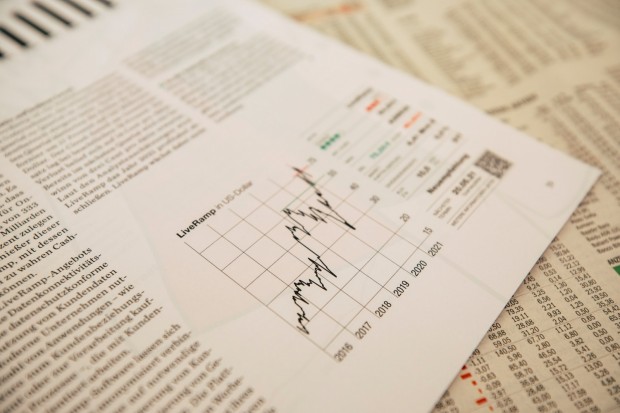Photo : Markus Spiske on Unsplash
Gross Domestic Product, or GDP, is one of the best tools to assess how well or poorly an economy is doing.
The GDP allows firms to decide when to grow their business and hire more employees, and it also helps the government determine how much tax to ask for and spend.
Understanding GDP
What is GDP? GDP refers to the aggregate activity of individuals, companies, and governments in a country.
The US produces new GDP figures every month. However, the quarterly figures, which cover three months at once, are the most popular.
A growing economy will see each quarter's GDP slightly higher than the one before. This is a sign that people do more work and are getting richer.
Many economists, politicians, and businesses want to see GDP rise steadily. This is because higher GDP means that people spend more, create more jobs, pay more taxes, and receive better pay raises.
If the GDP falls, it is a sign that the economy is in decline - which is bad news for workers and businesses.
What's a recession?
A recession is when GDP falls in consecutive quarters. This can lead to job losses and pay freeze.
The Covid pandemic brought about the worst recession in more than 300 years. It hurt employment and business and forced the government to borrow hundreds upon billions of dollars to sustain the economy.
What does GDP mean to me?
The government will use GDP growth as evidence that it is managing the economy well. However, if the GDP falls, opposition politicians will claim that the government is not managing it well.
It's more than a report on the government's performance. People will pay more taxes if GDP keeps rising because they earn more and spend more. This means that the government will have more money to spend on public services like schools, police, and hospitals.
The government also wants to monitor how much money they borrow relative to the economy's size.
In the first year after the Covid pandemic, for example, borrowing reached the highest level of borrowing since World War Two.
How does the GDP get measured?
There are three ways to measure GDP:
-
Output - Total value of all goods and services produced in the economy, including agriculture, manufacturing, energy, and construction.
-
Expenditure - This is the value of goods or services purchased by households and the government, as well as investment in machinery, buildings, and other equipment. It also includes imports.
-
Income - The income earned, mainly in terms of wages and profits.
The United States Census Bureau (USCB) in the US publishes a single measure of GDP.
It takes the quantity of all goods or services produced (or both), multiplies them by their prices and sums the total. The GDP can either be measured by the total amount of goods and services purchased or by the produced products.
What are the GDP limits?
The GDP growth is not the complete story. It has many limits.
Statistics might overlook many things:
-
Hidden economy - Unpaid labor is not included in official figures, such as care for elderly relatives
-
Inequality - GDP growth does not tell us how income is divided across a population. Increasing GDP could lead to the rich getting wealthier and everyone being better off.
The GDP growth does not necessarily mean that a person's standard is rising.
A country's population will increase, which will cause its GDP to rise. More people means more money. However, individuals in that country may not be getting wealthier. Even though GDP is increasing, they may be becoming poorer.
The US publishes a figure of GDP per head (of the population), which can sometimes tell a different story than the main GDP number.
What is the reason for rising living costs?
Critics argue that GDP does not consider whether economic growth is sustainable or what damage it may do to the natural world. As a result, alternative solutions have been proposed.
There have been many attempts to improve indicators that measure social well-being due to the GDP limitations. The Human Development Index (HDI), Gross National Happiness Index, and Social Progress Index (SPI) are some of these alternatives.
* This is a contributed article and this content does not necessarily represent the views of universityherald.com









